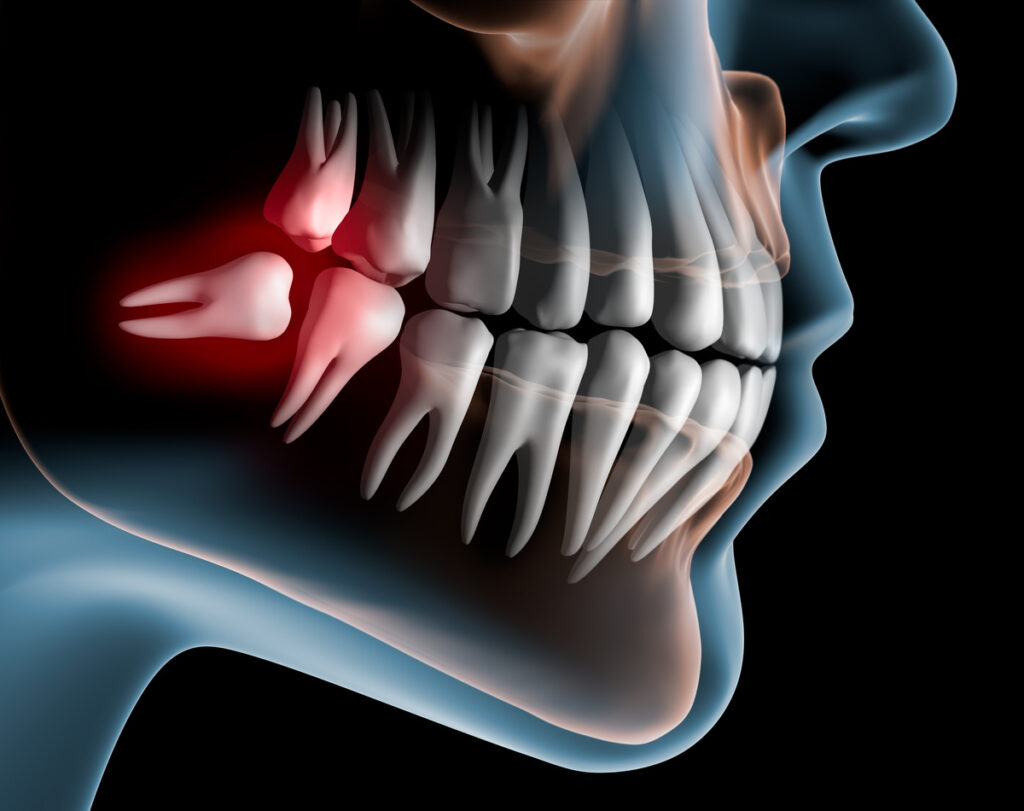
Choosing the right anesthesia for your wisdom tooth removal is a crucial decision that affects your comfort, safety, and overall experience. Both local and general anesthesia options have distinct advantages, and the best choice depends on factors like the complexity of your procedure, your anxiety level, and your medical history. Understanding these anesthesia options helps you make an informed decision about your upcoming surgery.
At Warren Oral Surgery, our team of six skilled oral surgeons has extensive experience with all types of anesthesia for wisdom tooth removal since 2004. We prioritize your comfort and safety while providing the most appropriate anesthesia option for your specific needs and procedure complexity.
Local Anesthesia Explained
Local anesthesia involves injecting numbing medication directly into the tissues around your wisdom teeth. This completely eliminates pain in the surgical area while you remain fully conscious and alert throughout the procedure.
The most commonly used local anesthetic is lidocaine, which blocks nerve signals from reaching your brain. The injection itself causes brief discomfort, but once the area is numb, you won’t feel pain during the extraction. You may still feel pressure and movement as the surgeon works, but these sensations aren’t painful.
Local anesthesia typically takes effect within minutes and can last several hours after your procedure. This extended numbness helps manage post-operative discomfort as you begin your recovery process.
Benefits of Local Anesthesia
Local anesthesia offers several advantages for appropriate candidates. You remain fully conscious and can respond to your surgeon’s instructions during the procedure. This awareness can be reassuring for patients who prefer to stay alert and involved in their treatment.
Recovery from local anesthesia is immediate since there are no systemic effects to wear off. You can drive yourself home after the procedure and resume normal activities more quickly. The cost is typically lower than procedures requiring general anesthesia or IV sedation.
Local anesthesia also carries fewer medical risks since it doesn’t affect your breathing, heart rate, or blood pressure. Patients with certain medical conditions may be better candidates for local anesthesia because it avoids the potential complications associated with general anesthesia.
When Local Anesthesia Works Best
Simple, straightforward wisdom tooth extractions are ideal candidates for local anesthesia. If your wisdom teeth have fully erupted and aren’t impacted, local anesthesia usually provides adequate comfort for removal.
Patients with minimal dental anxiety who feel comfortable staying awake during the procedure often do well with local anesthesia. Good candidates can follow instructions, remain still during the procedure, and don’t have a strong gag reflex that might interfere with treatment.
Single tooth extractions or procedures expected to take less than an hour are often suitable for local anesthesia alone. Your oral surgeon will evaluate the position and complexity of your wisdom teeth to determine if local anesthesia is appropriate.
General Anesthesia Overview
General anesthesia renders you completely unconscious during your wisdom tooth removal. You’ll be monitored continuously by trained professionals while specialized equipment ensures your safety throughout the procedure.
Under general anesthesia, you won’t remember anything about the surgery and won’t experience any discomfort during the procedure. Your breathing, heart rate, blood pressure, and other vital signs are carefully monitored throughout the entire process.
The anesthesia is administered through an IV line, and you’ll fall asleep within minutes. Upon waking, the procedure will be complete, and you’ll be monitored in a recovery area until you’re stable and alert enough to go home with a responsible adult.
Advantages of General Anesthesia
General anesthesia eliminates all awareness and memory of the surgical procedure, which can be particularly beneficial for anxious patients. Complex extractions involving multiple impacted teeth can be completed more efficiently when you’re under general anesthesia.
Patients with strong gag reflexes, difficulty remaining still, or severe dental anxiety often benefit significantly from general anesthesia. The surgeon can work without interruption, potentially reducing overall procedure time and improving surgical outcomes.
For extensive procedures involving bone removal or complex impactions, general anesthesia allows for more thorough and precise surgical techniques without patient discomfort or movement.
Ideal Candidates for General Anesthesia
Multiple wisdom teeth being removed simultaneously often warrant general anesthesia, especially if they’re impacted or positioned difficultly. Patients with medical conditions that make it challenging to remain still or comfortable during lengthy procedures may benefit from general anesthesia.
Severe dental anxiety or previous traumatic dental experiences can make general anesthesia the best choice for some patients. Young patients or those with developmental disabilities may also be better candidates for general anesthesia.
Complex surgical cases requiring extensive bone removal, tooth sectioning, or other advanced techniques typically require general anesthesia for optimal results and patient comfort.
Safety Considerations
Both anesthesia options are extremely safe when administered by qualified professionals in properly equipped facilities. Our surgical team includes trained anesthesia providers and monitors all patients continuously during procedures requiring general anesthesia.
Pre-operative health evaluation helps determine which anesthesia option is safest for each patient. Factors like your medical history, current medications, and overall health status all influence anesthesia selection.
Patients choosing general anesthesia must follow specific pre-operative instructions, including fasting requirements, to ensure safety during the procedure. Post-operative care instructions also differ depending on the anesthesia used.
Making Your Decision
The choice between local and general anesthesia should be made collaboratively with your oral surgeon after thorough discussion of your specific case. Consider factors like procedure complexity, your anxiety level, recovery time preferences, and any medical considerations.
Don’t hesitate to ask questions about either option. Understanding what to expect helps reduce anxiety and ensures you’re comfortable with your choice. Your oral surgeon can provide detailed information about what each option involves and help you choose what’s best for your situation.
Warren Oral Surgery’s Anesthesia Experience
At Warren Oral Surgery, our surgeons, including Dr. Marquis, have extensive training in all anesthesia options for wisdom tooth removal. Our state-of-the-art facility is fully equipped for safe administration of both local and general anesthesia, with 15 operatories featuring the latest monitoring and safety equipment. Founded by Dr. Sullivan, our practice has built a reputation for exceptional patient care and safety, with all staff members CPR certified and trained in emergency procedures.
Choosing the right anesthesia is an important part of ensuring your wisdom tooth removal goes smoothly and comfortably. Our team will thoroughly discuss your options, answer your questions, and help you select the anesthesia approach that best meets your needs and preferences. Contact us today to schedule your consultation and discuss which anesthesia option is right for your wisdom tooth removal.

